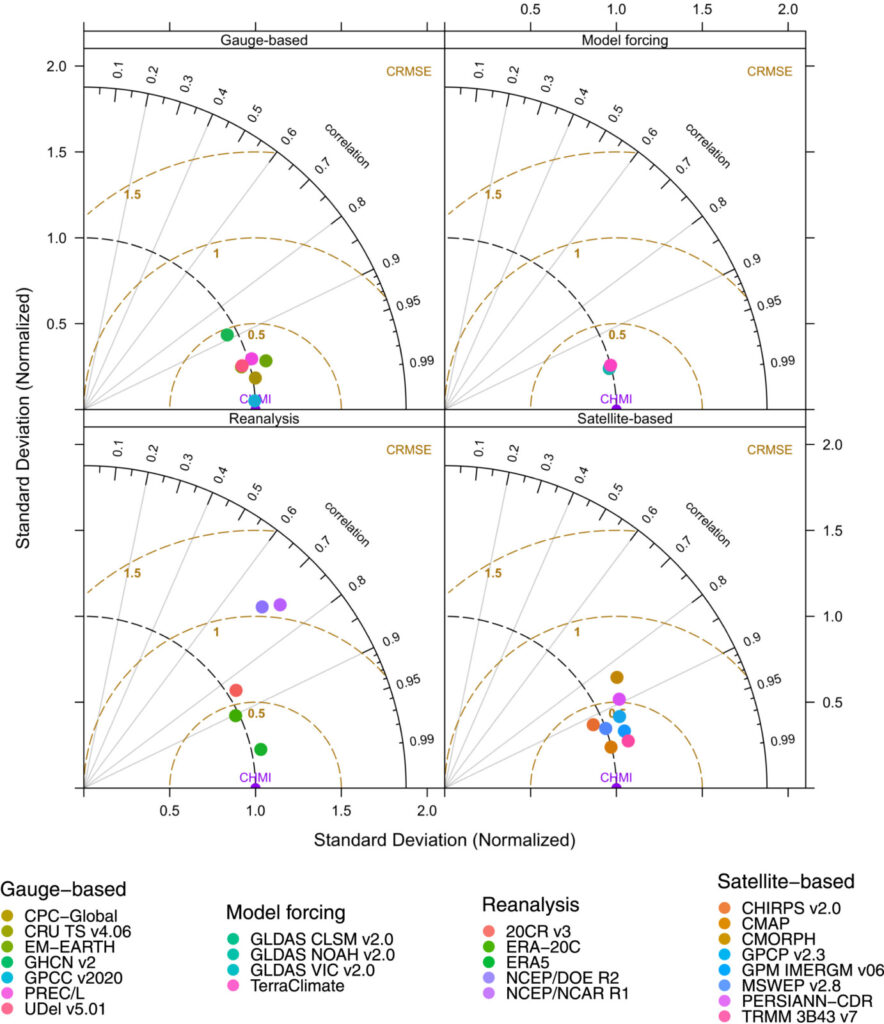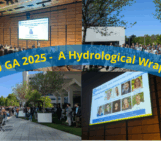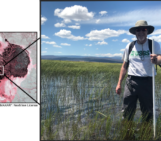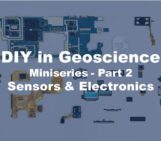
Welcome back to the HydroData Chronicles, where we uncover the hidden stories within hydrological data! In our last post, we explored a novel high-resolution, 40-year rainfall dataset covering the Contiguous United States (CONUS), developed developed by Emmanouil et al. in 2021. This time, we dive into the world of precipitation datasets with a promising new tool: the pRecipe package developed by Mijael Rodrigo Vargas Godoy and Yannis Markonis in 2023. Designed to provide a user-friendly and easy to use common starting point for the hydrology scientific community, pRecipe is enhancing precipitation research with its homogenized database and versatile export capabilities!
Introduction to pRecipe
The pRecipe package, which developed in R with adherence to reproducible science standards, presents a systematic approach to advance precipitation research, as it forms a homogeneous database by aggregating 27 widely used precipitation datasets (seven gauge-based, eight satellite-based, seven reanalysis, and five hydrological model precipitation products). This common foundation facilitates rigorous analysis and ensures a fully reproducible framework, rendering it particularly important for academic researchers, government agencies, and professionals in the private sector.
Key Features and Capabilities
As pRecipe integrates various precipitation datasets, it creates a consistent starting point for all users, while providing functions to download, explore, process, and visualize datasets at monthly time-step and 0.25O resolution. This harmonized approach ensures the data standardization, facilitating more accurate and comparable results across studies.
Designed with user-friendliness in mind, pRecipe offers an intuitive interface for accessing and analyzing precipitation data. Users can easily visualize various characteristics of precipitation climatology, making it accessible for both novice researchers and seasoned experts. The package’s documentation and examples further streamline the learning curve, ensuring that users can quickly harness its full potential.
pRecipe in Action
The pRecipe, allows users to create comparative visualizations of precipitation patterns, trends and anomalies, which improve the hydrological understanding on regional and global scale. By using pRecipe, researchers can ensure the consistency of the applied data, allowing for replication of relevant studies and validation of their results. The seamless export of data to NetCDF (i.e. raster) or CSV (data.table) formats allows users to combine the pRecipe with other powerful R packages for advanced analytics and expanding the possibilities in precipitation studies.

Comparison between selected data sets by season, by Vargas Godoy and Markonis (@ Elsevier)
Future Developments
The pRecipe team is developing a twin package focused on evaporation (evapoRe) which will be combined with pRecipe and together will form a holistic framework for studying the terrestrial water cycle.
Access the Dataset Here!
The pRecipe package is freely available at https://cran.r-project.org/web/packages/pRecipe/vignettes/introduction.html
Whether you are visualizing precipitation patterns or conducting complex statistical analyses, pRecipe provides the tools you need to advance your research.
Call for Content
We invite fellow researchers, scientists, and enthusiasts to join us in shaping the narrative of hydrological data exploration, as we begin this adventure. If you have a dataset that you want to share with the world, and believe would be valuable to other researchers, we’d love to hear from you!
Feel free to reach out to [athanseraf@hotmail.com] to discuss featuring your dataset in an upcoming post. Together, let’s delve deeper into the realm of hydrological data and uncover its untold stories.




